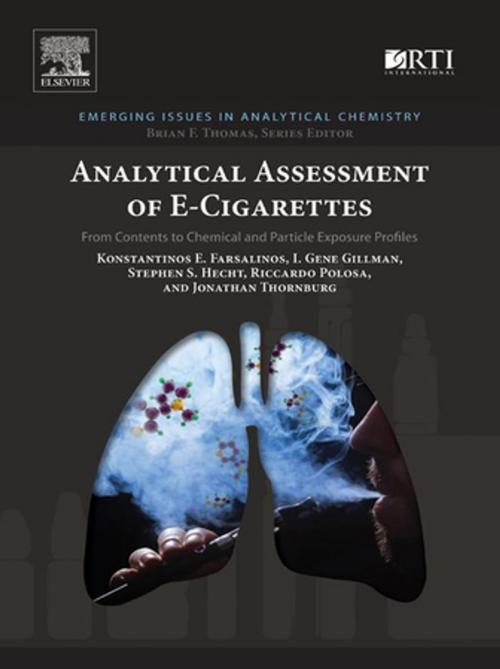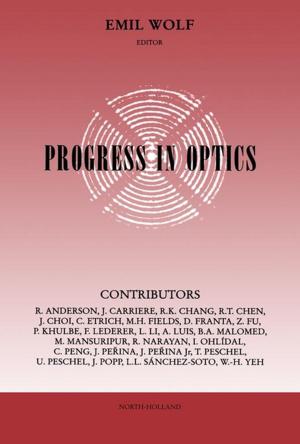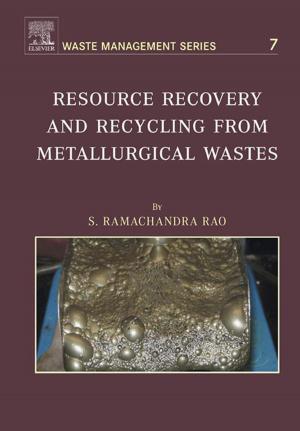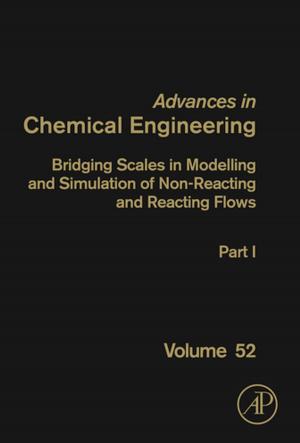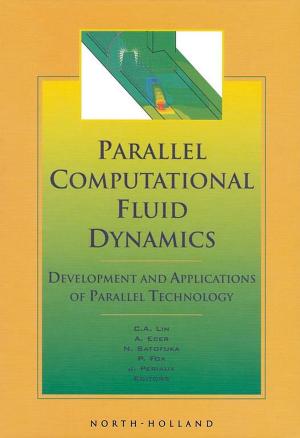Analytical Assessment of e-Cigarettes
From Contents to Chemical and Particle Exposure Profiles
Nonfiction, Science & Nature, Science, Chemistry, Analytic, Health & Well Being, Medical, Reference, Public Health| Author: | Konstantinos E. Farsalinos, I. Gene Gillman, Stephen S. Hecht, Riccardo Polosa, Jonathan Thornburg | ISBN: | 9780128112427 |
| Publisher: | Elsevier Science | Publication: | November 16, 2016 |
| Imprint: | Elsevier | Language: | English |
| Author: | Konstantinos E. Farsalinos, I. Gene Gillman, Stephen S. Hecht, Riccardo Polosa, Jonathan Thornburg |
| ISBN: | 9780128112427 |
| Publisher: | Elsevier Science |
| Publication: | November 16, 2016 |
| Imprint: | Elsevier |
| Language: | English |
A volume in the Emerging Issues in Analytical Chemistry series, Analytical Assessment of E-Cigarettes: From Contents to Chemical and Particle Exposure Profiles addresses the many issues surrounding electronic cigarettes in an unprecedented level of scientific detail. The plethora of product devices, formulations, and flavors, combined with the lack of industry standards and labeling requirements, quality control, and limited product oversight, has given rise to public concern about initiation of use and potential for adverse exposure and negative long-term health outcomes. This volume discusses how analytical methods can address these issues and support the manufacturing, labeling, distribution, testing, regulation, and monitoring for consistency of products with known chemical content and demonstrated performance characteristics.
The book begins with the background on aerosol drug delivery services and e-cigarettes, constituents of nicotine-containing liquid dosing formulations, typical use scenarios and associated aerosol emissions, and chemical exposures and pharmacological and toxicological effect profiles, and then continues with descriptions of the analytical methods used to characterize the chemicals in formulations and emissions from e-cigarettes, including their stability, physical particle-size distribution and thermal degradation under commonly employed conditions of use.
Analytical methods enabling detection of biomarkers of exposure and harm in complex biological matrices are discussed, with an emphasis on constituents or emissions of current medicinal interest or with potential to produce harm. Opportunities and challenges for analytical chemistry in supporting the continued development and use of safe and consistent dosage formulations as alternatives to tobacco products are also explored, with a concluding section describing an analytical approach to a risk-benefit assessment of e-cigarette use on human health.
The Emerging Issues in Analytical Chemistry series is published in partnership with RTI International and edited by Brian F. Thomas. Please be sure to check out our other featured volumes: Thomas, Brian F. and ElSohly, Mahmoud. The Analytical Chemistry of Cannabis: Quality Assessment, Assurance, and Regulation of Medicinal Marijuana and Cannabinoid Preparations, 9780128046463, December 2015. Hackney, Anthony C. Exercise, Sport, and Bioanalytical Chemistry: Principles and Practice, 9780128092064, March 2016. Tanna, Sangeeta and Lawson, Graham. Analytical Chemistry for Assessing Medication Adherence, 9780128054635, April 2016. Rao, Vikram; Knight, Rob; and Stoner, Brian. Sustainable Shale Oil and Gas: Analytical Chemistry, Biochemistry, and Geochemistry Methods, 9780128103890, September 2016.
- Discusses the chemistry and physics involved in aerosol production, inhalation, deposition, chemical exposure, and effect assessment
- Contains current information and state-of-the-science methods on e-cigarette emissions, exposures, and harm assessment
- Offers an authoritative, objective perspective from five of the most well-recognized scientists in their areas of expertise who have no personal stake in the e-cigarette industry or the opposition
- Includes a foreword written by Dr. Neal Benowitz
A volume in the Emerging Issues in Analytical Chemistry series, Analytical Assessment of E-Cigarettes: From Contents to Chemical and Particle Exposure Profiles addresses the many issues surrounding electronic cigarettes in an unprecedented level of scientific detail. The plethora of product devices, formulations, and flavors, combined with the lack of industry standards and labeling requirements, quality control, and limited product oversight, has given rise to public concern about initiation of use and potential for adverse exposure and negative long-term health outcomes. This volume discusses how analytical methods can address these issues and support the manufacturing, labeling, distribution, testing, regulation, and monitoring for consistency of products with known chemical content and demonstrated performance characteristics.
The book begins with the background on aerosol drug delivery services and e-cigarettes, constituents of nicotine-containing liquid dosing formulations, typical use scenarios and associated aerosol emissions, and chemical exposures and pharmacological and toxicological effect profiles, and then continues with descriptions of the analytical methods used to characterize the chemicals in formulations and emissions from e-cigarettes, including their stability, physical particle-size distribution and thermal degradation under commonly employed conditions of use.
Analytical methods enabling detection of biomarkers of exposure and harm in complex biological matrices are discussed, with an emphasis on constituents or emissions of current medicinal interest or with potential to produce harm. Opportunities and challenges for analytical chemistry in supporting the continued development and use of safe and consistent dosage formulations as alternatives to tobacco products are also explored, with a concluding section describing an analytical approach to a risk-benefit assessment of e-cigarette use on human health.
The Emerging Issues in Analytical Chemistry series is published in partnership with RTI International and edited by Brian F. Thomas. Please be sure to check out our other featured volumes: Thomas, Brian F. and ElSohly, Mahmoud. The Analytical Chemistry of Cannabis: Quality Assessment, Assurance, and Regulation of Medicinal Marijuana and Cannabinoid Preparations, 9780128046463, December 2015. Hackney, Anthony C. Exercise, Sport, and Bioanalytical Chemistry: Principles and Practice, 9780128092064, March 2016. Tanna, Sangeeta and Lawson, Graham. Analytical Chemistry for Assessing Medication Adherence, 9780128054635, April 2016. Rao, Vikram; Knight, Rob; and Stoner, Brian. Sustainable Shale Oil and Gas: Analytical Chemistry, Biochemistry, and Geochemistry Methods, 9780128103890, September 2016.
- Discusses the chemistry and physics involved in aerosol production, inhalation, deposition, chemical exposure, and effect assessment
- Contains current information and state-of-the-science methods on e-cigarette emissions, exposures, and harm assessment
- Offers an authoritative, objective perspective from five of the most well-recognized scientists in their areas of expertise who have no personal stake in the e-cigarette industry or the opposition
- Includes a foreword written by Dr. Neal Benowitz
